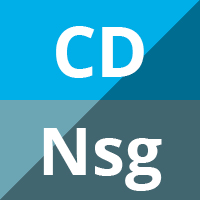
Percutaneous endoscopic gastrostomy versus percutaneous radiological gastrostomy for swallowing disturbances
Abstract Background Gastrostomy has been established as the standard procedure for administering long-term enteral nutrition in individuals with swallowing disturbances. Percutaneous gastrostomy is a less-invasive approach than open surgical gastrostomy, and can be accomplished via endoscopy (percutaneous endoscopic gastrostomy or PEG) or sonographic or fluoroscopic guidance (percutaneous radiological gastrostomy or PRG). Both techniques have different […]

Pharmacological interventions for unilateral spatial neglect after stroke
Abstract Background Unilateral spatial neglect (USN) is characterized by the inability to report or respond to people or objects presented on the side contralateral to the lesioned side of the brain and has been associated with poor functional outcomes and long stays in hospitals and rehabilitation centers. Pharmacological interventions (medical interventions only, use of drugs […]

Fibrates for secondary prevention of cardiovascular disease and stroke
Abstract Background Fibrates are a class of drugs characterised by mainly lowering high triglyceride, raising high-density lipoprotein (HDL) cholesterol, and lowering the small dense fraction of low-density lipoprotein (LDL) cholesterol. Their efficacy for secondary prevention of serious vascular events is unclear, and to date no systematic review focusing on secondary prevention has been undertaken. Objectives […]

Constraint-induced movement therapy for upper extremities in people with stroke
Abstract Background In people who have had a stroke, upper limb paresis affects many activities of daily life. Reducing disability is therefore a major aim of rehabilitative interventions. Despite preserving or recovering movement ability after stroke, sometimes people do not fully realise this ability in their everyday activities. Constraint-induced movement therapy (CIMT) is an approach […]

Closure versus medical therapy for preventing recurrent stroke in patients with patent foramen ovale and a history of cryptogenic stroke or transient ischemic attack
Abstract Background The optimal therapy for preventing recurrent stroke in people with cryptogenic stroke and patent foramen ovale (PFO) has not been defined. The choice between medical therapy (antithrombotic treatment with antiplatelet agents or anticoagulants) and transcatheter device closure has been the subject of intense debate over the past several years. Despite the lack of […]

Parenteral fluid regimens for improving functional outcome in people with acute stroke
Abstract Background Parenteral fluids are commonly used in people with acute stroke with poor oral fluid intake. However, the balance between benefit and harm for different fluid regimens is unclear. Objectives To assess whether different parenteral fluid regimens lead to differences in death, or death or dependence, after stroke based on fluid type, fluid volume, […]

Combined oral contraceptives: the risk of myocardial infarction and ischemic stroke
Abstract Background Combined oral contraceptives (COCs) have been associated with an increased risk of arterial thrombosis, i.e. myocardial infarction or ischemic stroke. However, as these diseases are rare in young women and as many types of combined oral contraception exist, the magnitude of the risk and the effect of different hormonal contents of COC preparations […]

Buflomedil for acute ischaemic stroke
Abstract Background Few strategies are effective for the treatment of acute ischaemic stroke. Buflomedil is a vasoactive agent that has been used for peripheral arterial diseases. Research studies have suggested that buflomedil may have beneficial effects in people with cerebral vascular diseases, including acute ischaemic stroke, however it has not been approved for treating stroke […]

Prothrombin complex concentrate for reversal of vitamin K antagonist treatment in bleeding and non-bleeding patients
Abstract Background Treatment with vitamin K antagonists is associated with increased morbidity and mortality. Reversal therapy with prothrombin complex concentrate (PCC) is used increasingly and is recommended in the treatment of patients with bleeding complications undertaking surgical interventions, as well as patients at high risk of bleeding. Evidence is lacking regarding indication, dosing, efficacy and […]

Interventions for post-stroke fatigue
Abstract Background Post-stroke fatigue (PSF) is a common and distressing problem after stroke. The best ways to prevent or treat PSF are uncertain. Several different interventions can be argued to have a rational basis. Objectives To determine whether, among people with stroke, any intervention reduces the proportion of people with fatigue, fatigue severity, or both; […]

